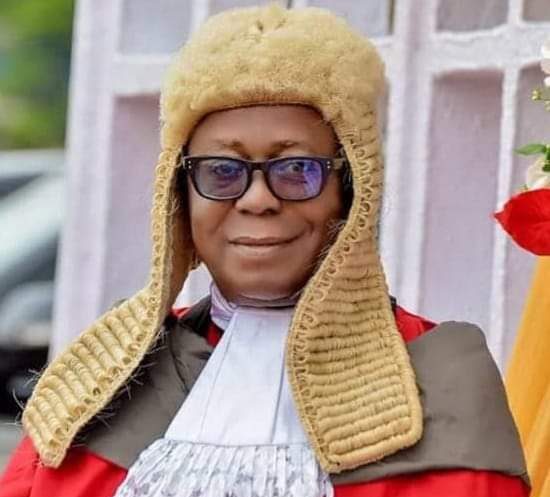The ongoing impeachment process instituted by the Ondo State House of Assembly against the number two citizen of the state, Lucky Ayedatiwa encountered a set back following a constitutional breach cited by the Chief Judge of Ondo state, Justice Olusegun Odusola.
Justice Odusola had stepped down the process of setting up a seven-man investigation panel to investigate allegations of gross misconduct levelled against the embattled Deputy Governor Lucky Aiyedatiwa.
The State Assembly had written the Chief Judge of the state, asking him to constitute the panel in line with section 188 of the 199 Constitution of the Federal Republic of Nigeria as amended.
However the CJ in a letter to the Speaker of the State House of Assembly, Rt Hon Oladiji Olamide Aderanmi, with ref no. CROD/1123/V.3/ dated October 6, 2023, cited Section 287 (3) of the Constitution as the reason why he cannot act on the letter from the House.
The CJ said he was barred from performing the function by an order of a Federal High Court.
Titled: “Re: Letter Of Request To Set Up Investigation Panel Pursuant To Section 188 [5] Of The 1999 Constitution (As Amended),” Chief Justice Odusola said that despite being mindful of section 188, there’s a restriction order from a Federal High Court in Abuja.
“Your letter reference NO: ODHA/98/253/406 of October 3, 2023 in respect of the above matter refers. I wish to inform you that on 28 September 2023, I was served with an Order of interim injunction granted by the Federal High Court, Abuja, Coram: Hon Justice Emeka Nwite in Suit No: FHC/AB/CS/1294/2023 dated September 26, 2023 in respect of this subject matter.
“Order 4 therein restrains the Chief Judge of Ondo State from “constituting any seven-man panel at the instance of the 4th Defendant Respondent in respect of the complaint of the plaintiff” among others, (Please find attached hereto a copy of the order).
“I am not unmindful of S. 188(10) of the Constitution of the Federal Republic of Nigeria 1999 as amended which provides as follows: ‘No proceedings or determination of the Panel or of the House of Assembly or any matter relating to such proceeding or determination shall be entertained or questioned in any court’.
“Notwithstanding the above provision, a Court order is binding until set aside either by a Court of coordinate jurisdiction or by an appellate court.”
















